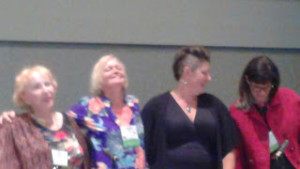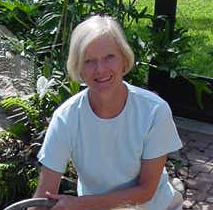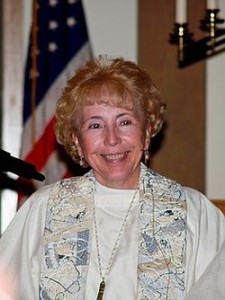To Stay or Not to Stay: Facing Challenges in the Pursuit of Equality: Parliament of the World’s Religions Workshop
One of the most powerful workshops I attended at the Parliament of the World’s Religions in Salt Lake City explored the difficult decision women face about whether to stay and work for change within their religious traditions or to leave to find equality outside their religions.


A panel of four women discussed the topic “To Stay or Not to Stay: Facing Challenges in the Pursuit of Equality.” Kate Kelly and Brooke Swallow left their Mormon tradition; Ann Smith chose to stay in her Episcopal tradition, and Bridget Mary Meehan chose to stay in her Roman Catholic tradition. Kate and Brooke spoke on the importance of upholding the human rights of women even at the cost of losing their religion. Ann and Bridget Mary chose to remain within their faith traditions to bring about necessary changes that will uphold the dignity and human rights of women.

In 2013 Kate Kelly, a human rights lawyer, founded Ordain Women to get at the root cause of sexism in the Mormon church: men are ordained and women are not. Mormonism operates with a lay clergy, and all men and boys are ordained at the age of 12, meaning nearly seven million men are ordained. That leaves seven million women and girls who are not. Thus women are excluded from all leadership roles, from all decision-making, and from performing rituals.
At the Parliament workshop Kate Kelly also tells of being excommunicated from the Mormon church in 2014 because of her advocacy for gender justice in the religion. She appealed the excommunication and lost. “I chose to stay, but they wouldn’t have me,” Kate says, her voice trembling with emotion. “I tried to stay and make things better. Now I see that staying is not the only honorable option. I had to stand for principle instead of an institution. I want women to follow their own hearts, but that’s difficult when we’re indoctrinated every day. I hope women will put faith in themselves. Some may be able to stay and work for change from within the church. There is no one way to dismantle patriarchy.” She talks about the pain she felt the day of her excommunication. She hurt not only for herself, but for her family who had to choose between love and loyalty to the church and love for her. Kate expresses gratitude that they have chosen love for her, but sadness that they have suffered the consequences of being ostracized by church leaders and losing friends and influence in the church. She thanks her mother who is in the audience that day at her Parliament workshop.

In June of 2013 Brooke Swallow, a social justice activist, chose to leave the Mormon church to protest not only the church’s policies that exclude women from leadership but also the church’s stand against same-sex marriage and the church’s stance on other social issues. Since then Brook has helped organize mass-resignation events near Temple Square in Salt Lake City. At the most recent event on November 15, 2015, more than 1,000 Mormons submitted letters of resignation to protest a new policy barring children of married same-sex couples from being baptized until they are adults. “This is about compassion and supporting our community,” Brooke said. “No longer are we going to keep our mouths shut.”
At the Parliament workshop Brook Swallow says that the Mormon church never taught her about feminism; in fact, the church taught her that feminism was evil. She says, “I felt I had to leave the Mormon church, but I went through a grieving process when I left the religion I grew up in.” Brooke talks also about the family, social, cultural, and economic sanctions imposed against her and others in Utah who aren’t Mormon, who don’t dress with Mormon garments and keep Mormon customs.

Ann Landaas Smith, co-founder and director of Circle Connections, works with national and global organizations as an advocate for women, the environment, and other social justice issues. She believes that including the Divine Feminine is vital to justice and peace: “When enough people worship the Divine Feminine—as sacred, as God—the rape of women, sex trafficking, and all forms of violence against women and girls and the land, all creation, will end. We are co-creating a new story that balances the Divine Masculine with the Divine Feminine.” Because she brought the Divine Feminine into worship and helped organize the global women’s movement, she was fired from her position as director of Women in Mission and Ministry in the Episcopal Church USA, a position she had held for 17 years.
At the Parliament workshop Ann Landaas Smith also talks about working for change both within and outside her Episcopal tradition. She calls herself an “Episcopagan,” telling how she combines her Episcopal faith and earth-based spirituality. She feels “connected to Earth” and compelled to care for creation. Although the Episcopal hierarchy fired her because of her feminist advocacy work, Ann has chosen to stay in the Episcopal church to bring transformation. “We’re in solidarity with the church, but the church is not in solidarity with us,” she says. “My mission of bringing Divine Feminine language continues, of celebrating God as both Mother and Father to value all people and all creation in the divine image. And I am a circle evangelist, replacing hierarchies with circles. I believe in power with, not power over.”

Bridget Mary Meehan, a Bishop in the Association of Roman Catholic Women Priests, rejects the Vatican’s excommunication and chooses to stay in her tradition. Bridget Mary was among the first eight women in the US to be ordained Roman Catholic priests and among the first four American Roman Catholic women bishops. There are now more than 215 ordained Catholic women priests and 75 faith communities led by them. Although the Vatican has excommunicated these women priests, their ordination is valid according to Catholic tradition because the male bishop who ordained the first women bishops is in full apostolic succession. “We are not leaving the church, but leading it to a new day of justice and equality,” Bridget Mary says.
At the Parliament workshop Bishop Bridget Mary Meehan also talks about why she stays in the Roman Catholic Church. “The people are the church,” she says. “The hierarchy alone is not the church! Even though my church is patriarchal and dysfunctional, I am staying to build a bridge to move it from its present sexist, oppressive structures to a new community that honors women and men as equals in every area of life.” Bridget Mary also stays because she loves the mystical and social justice heritage in Catholicism and because she is passionate about her ministry of bringing gender equality to the church and the world. “The Roman Catholic Women Priests Movement is a great blessing to the institutional church,” she says. “Our liturgies include female imagery of God and dialogue homilies. In our grassroots communities, all are welcome, including the divorced and remarried without annulments, LGBTQ people, and women who have given up on the church. Our vision is to renew the church as a discipleship of equals.”

Wonderful and inspirtional!!
Thank you, Bridget Mary, for your amazing, prophetic ministry that inspires so many people! You and the other Roman Catholic women priests are changing the church and the world!